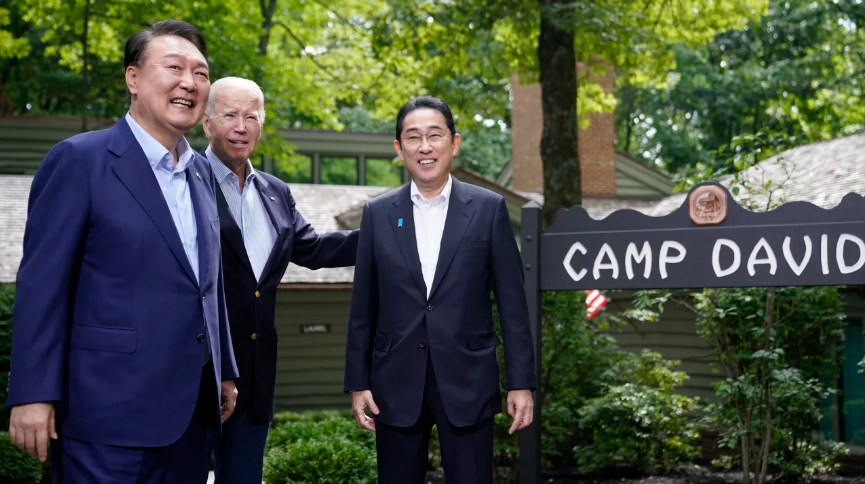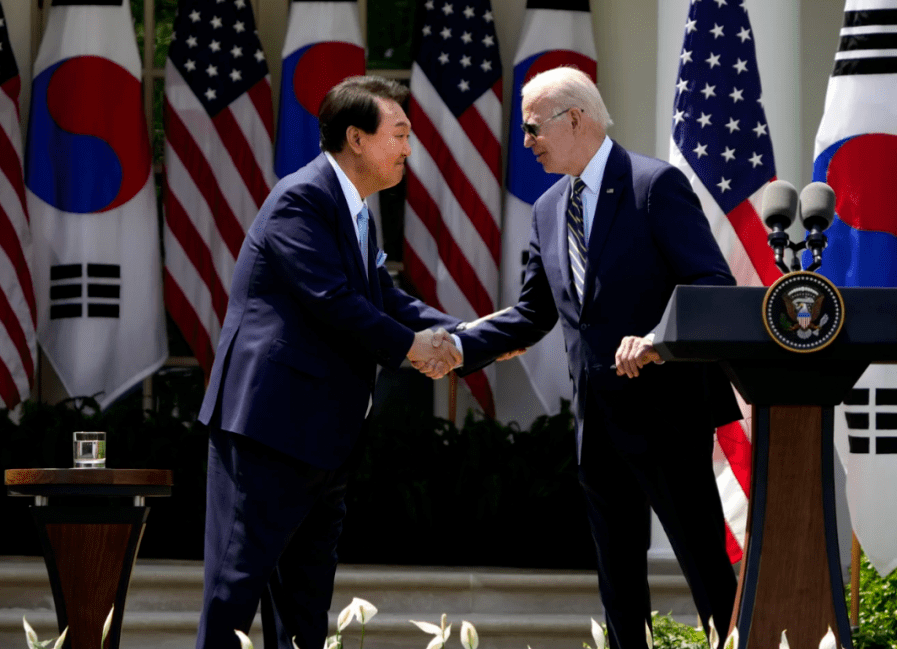Earl Carr, Founder and Chief Executive Officer at CJPA Global Advisors
Nathaniel Schochet, Analyst and CJPA Global Advisors
Sep 05, 2023
Amid rising geopolitical tensions in the Indo-Pacific region, the Biden administration orchestrated a significant breakthrough by fostering closer relations between South Korea and Japan. This shift is underscored by a recent trilateral summit involving the U.S., Japan, and South Korea, where leaders addressed shared challenges posed by China and North Korea. This collaboration signifies a critical step towards regional security, economic resilience, and a unified approach to navigating the dynamics of the Indo-Pacific.

Li Yan, Director of President's Office, China Institutes of Contemporary International Relations
Sep 05, 2023
The deepening trilateral collaboration of the United States, Japan and the Republic of Korea is undermining stability on the Korean Peninsula, and recent provocative actions, will only serve to escalate tensions further. In addition, harsh rhetoric erodes the fragile trust of nations and could result in a generalized sense of insecurity.
Luo Liang, Assistant Research Fellow, National Institute for South China Sea Studies
Jul 21, 2023
With stepped up military cooperation, the Philippines has joined the “first team” of U.S. allies working to restrict and subdue China. Yet others, such as Indonesia, have applied the brakes.
Jade Wong, Senior Fellow, Gordon & Leon Institute
Jul 21, 2023
Boundaries have always been a core element in international politics. The United States has extended its Monroe Doctrine from the dominance of its own hemisphere to the world at large, so it’s hard to say exactly what the boundaries of NATO will look like in the future. But we know it will be expanding.
Richard Javad Heydarian, Professorial Chairholder in Geopolitics, Polytechnic University of the Philippines
Jun 09, 2023
After years of distrust, Vietnam and the Philippines may finally have the opportunity to establish a truly consequential strategic partnership amid rising geopolitical uncertainty in the South China Sea.
Zhang Tuosheng, Principal Researcher at Grandview Institution, and Academic Committee Member of Center for International Security and Strategy at Tsinghua University
Jun 06, 2023
Four key opportunities present themselves in Northeast Asia, and it's important to grasp them while we can. Compared with the various major structural challenges in the region, the opportunities are few and small. But there are signs that the situation is improving, albeit slowly.
Zhang Yun, Professor, School of International Relations, Nanjing University
May 16, 2023
Extended deterrence by the U.S. and ROK, as well as the framing of security as a regional issue requiring alliances, illustrates the spread of NATO-style security thinking. From China’s perspective, this will result in a further imbalance in the region’s security order and requires resolute opposition.
Jade Wong, Senior Fellow, Gordon & Leon Institute
May 04, 2023
Chinese President Xi Jinping’s outreach to the president of Ukraine, Volodymyr Zelenskyy, could be a game-changer. The call was welcomed by Zelenskyy, who called it “long and meaningful.” As Beijing steps into its role as a global peacemaker, the world is taking notice.

Li Ning, Research Fellow at Center for Asia-Pacific Studies, Shanghai Institutes for International Studies
May 03, 2023
No leader of a U.S. ally has ever made such a show of fidelity before a trip to Washington. Yoon swiftly patched up relations with Japan, announced military aid to Ukraine and made comments on Taiwan.
Lucio Blanco Pitlo III, President of Philippine Association for Chinese Studies, and Research Fellow at Asia-Pacific Pathways to Progress Foundation
Apr 18, 2023
AUKUS has laid out a plan for Australia to acquire its own SSN fleet. While the buildup of subs will take several years, submarine basing access and easing of constraints on the transfer of submarine parts and technologies to allies and partners mean that the program’s impact can be felt sooner in the Indo-Pacific, including on the Taiwan Straits hotspot.
Back to Top

- China-US Focus builds trust and understanding between the U.S. and China through open dialogue among thought leaders.
- Our Offerings
- Topics
- Videos
- Podcasts
- Columnists
- Research Reports
- Focus Digest
- Stay Connected
-
Thanks for signing up!
- Get the latest stories from China-US Focus weekly.